Awning work is a process you may not be familiar with until you want one for your own home or business. And even then, there is a lot to learn about which products to use and what procedures best meet your individual awning needs. Therefore, it is vital to know that you can rely on the awning contractor you choose to give you good advice about their products and procedures that may be new to you. The key is to find the right awning contractor for your job.
A top-notch, professional awning company will be only too happy to supply you with answers to these questions. Being confident you’ve selected the right awning contractor will help ensure you get a quality awning and that your hard-earned money has been wisely spent.
QUESTIONS TO ASK AN AWNING COMPANY:
Is the company a full-time awning company? Some companies advertise themselves as an awning company (contractor), when awnings are really only a small portion of their business. The awning company you select to do business with should have full-time employees trained exclusively to manufacture and install custom awnings. Their employees should be familiar with awnings of various shapes and sizes and should be hired and trained as awning professionals, not general laborers. This will help to ensure that they are equipped to handle your individual awning needs.
Can the company design custom awnings? Be sure the awning company designs awnings to meet your needs and that fits the architecture of your business or residence. See if they can provide you with a colored rendering of the proposed work to be done.
What is the company’s workmanship warranty? A good awning company should provide a lifetime warranty on framework and a 5 (or more) year warranty on the materials (such as Sunbrella fabric). While the length of a warranty is important, the intent and ability to stand behind their warranty is even more important. Upon completion of your awning project, the installer should provide you with a customer care packet, including maintenance details, such as cleaning & care for your awning, precautions, etc.
Does the company carry insurance? An awning company or any other company that does work on or around your residence or business should carry comprehensive liability insurance, along with worker’s compensation coverage, to protect you in the event of an accident. Be aware that if a worker is injured on your property, the owner can be held liable for all costs associated, unless the worker is covered by worker’s compensation insurance. Awning companies who do not carry insurance will most likely be cheaper to hire, since they do not have the large insurance premiums to pay; however, this leaves you very exposed in the event of an unfortunate accident. There are a variety of reasons why full insurance may not be carried, such as: they are not a full-time awning company; they are new in the awning business; they cannot afford insurance premiums; they doesn’t stand behind their work.
What are my product choices? No awning fabric, frame or design is well-suited for all applications: (Do you have aluminum and galvanized frames available? Do you manufacture awnings using the lace-on system and the staple system? Do you have a choice of fabrics?). If that were the case, there would only be one fabric manufactured and one awning style offered. All awnings would then look alike. Ask to see various styles and fabrics that may work on your property.
PRICE vs. QUALITY
The old adage that says “you get what you pay for” is so true. Very rarely will a customer make the choice of paying less for work, only to have to re-do the work a second time or deal with quality issues down the road for the life of owning the awning. Even worse could be dealing with an awning that leaks or does not meet your needs.
Many Charlotte-area general contractors buy on price and price alone. There is no incentive to guarantee quality as long as an awning contractor bids a job, “As shown and specified”. Any sign or awning company can build on the cheap, but the dirty little secret is the steep price paid down the road. We call this “cost of ownership”. Getting a great deal on price seems great at the time on the front end, but it might come back to bite you if the quality isn’t there to begin with. Cheaper isn’t always better. Alpha Canvas is certainly not the cheapest company in town, nor do we want to be. Think about it this way: Saving 5% or 10% up front initially can cost BIG MONEY later on. How would it feel to do this job twice because the quality wasn’t there in the first place? How would it feel to know that you could have what you really wanted or to know that your issue has not been solved after spending money on a product?
FABRIC ATTACHMENT
Everyone loves the beauty and class of fabric awnings. There are many benefits to owning fabric awnings today. The styles and concepts are only limited by the imagination of the person designing the structure. One thing to consider when specifying awnings on a project is fabric attachment. How the fabric is attached to the awning frame.
PUT THE MONEY BACK IN YOUR POCKET
Fabric can be attached using various methods. It seems today that many awning companies ignore the cost of ownership and have gravitated to building awnings as cheaply as possible, using the thinnest metal available, then stapling the fabric to the frame. This is a big mistake.
DON’T SPEND A DOLLAR TO SAVE A DIME
Some benefits of a staple system awning include having your awning in just about any shape desired; no lace bar underneath the awning; no need for a sewing machine, seamstress or specialized equipment (invented so that sign companies could enter the awning market); lower initial cost of the awning (by 3-4%). Liabilities of a staple system awning include a recovery cost of approximately 25%-30% more. Awnings must be removed and transported back to the shop in most cases to be recovered; shrinking and yellowing PVC in the extrusion.
AWNING FABRICS
Covering your assets is important today and using the wrong fabric to do the job can be a huge mistake. Domestic and imported fabrics from around the world are readily available. What do you know about the fabric you have specified?
SUNBRELLA VS. CHINESE ACRYLICS AND SOLUTION DYED POLYESTER
Why or why not Sunbrella? Sunbrella fabrics debuted in 1961 as an alternative to the most popular awning fabric at the time: COTTON. Sunbrella offered the rich look and feel of cotton, but not fade or degrade, even in the brightest sun and offered years of carefree service. Today, with Sunbrella’s 10-year warranty and unmatched performance, there is little reason to consider an alternative.
There are; however, certain instances where such a choice is a viable option. Older pipe frames with little slope warrant alternative fabrics, which are better suited to shed water. Sunbrella is a water-resistant fabric – once water pools on it, it will eventually seep through and leak. (Sunbrella also offers 2 upgrades to their standard fabric, one which even features waterproof qualities with its’ Sunbrella Ultra option). Having the proper pitch is imperative if you expect Sunbrella to perform at it’s best. Have your awning professional at Alpha Canvas discuss your options.
Why or why not an alternative? Many of the new fabrics on the market today that are offered as a Sunbrella alternative are only slightly less expensive. Choosing to cover your awnings with an inexpensive fabric may seem like a good idea, but the cost of the fabric is used only a fraction of the total cost paid. Covering your awnings with an inexpensive fabric is more expensive over time because we will be back to recover your awnings again sooner, rather than later.
RENDERINGS
Your awning company can provide a digital color rendering of your proposed awning, even offering different style and color options to help you in your decision process. Many companies utilize Awning Composer – a software program designed to let you digitally present an awning on a photo of a home or building. It’s an innovative sales tool that gives awning companies the ability to take your awning photos and ideas, then convert them into realistic renderings of the finished product.
This should help familiarize you and provide a guide to the awning buying process to meet your needs. As always, any questions you ever have should be answered with a quick call or email to your local awning company. Be sure to also do your research online first by checking out websites and reviews of local companies in your region. There you should be able to locate a reputable company with a website and/or social media accounts you can look at, full of their product info, photos of their work, client listings, reviews, etc. Contact them for a free estimate, then schedule an appointment with a sales rep to go over all your ideas and plans. They should guide you through the design process and before you know it, you’ll be able to enjoy your new awnings.
Any other questions, please feel free to contact us at any time to plan your next awning!
Alpha Canvas and Awning: 411 E. 13th St., Charlotte, NC 28206 (704) 333-1581
Visit us on Facebook, Instagram, Twitter and Pinterest and check out our website: Alpha Canvas.
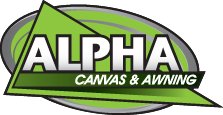
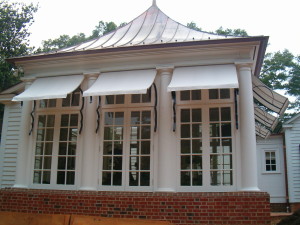
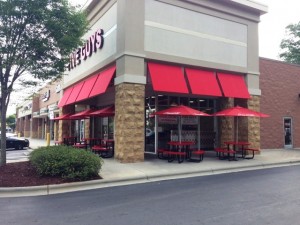
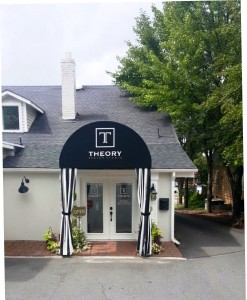
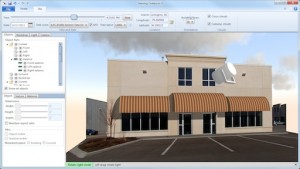
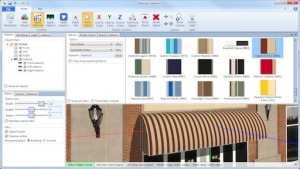
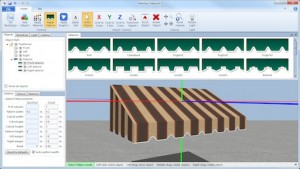
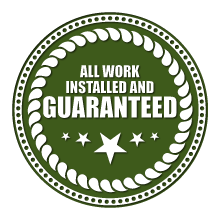
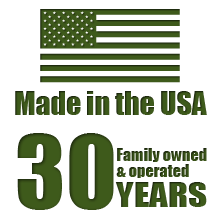
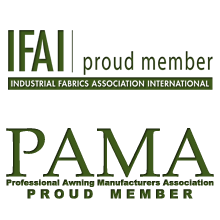
I agree that you get what you pay for, especially when it comes to awnings. It’s important to purchase an awning that you trust will be durable and perform it’s job effectively. Plus, it can save you a lot of worry and stress if you know you have an awning that won’t break or hurt your home should it fall apart later on.